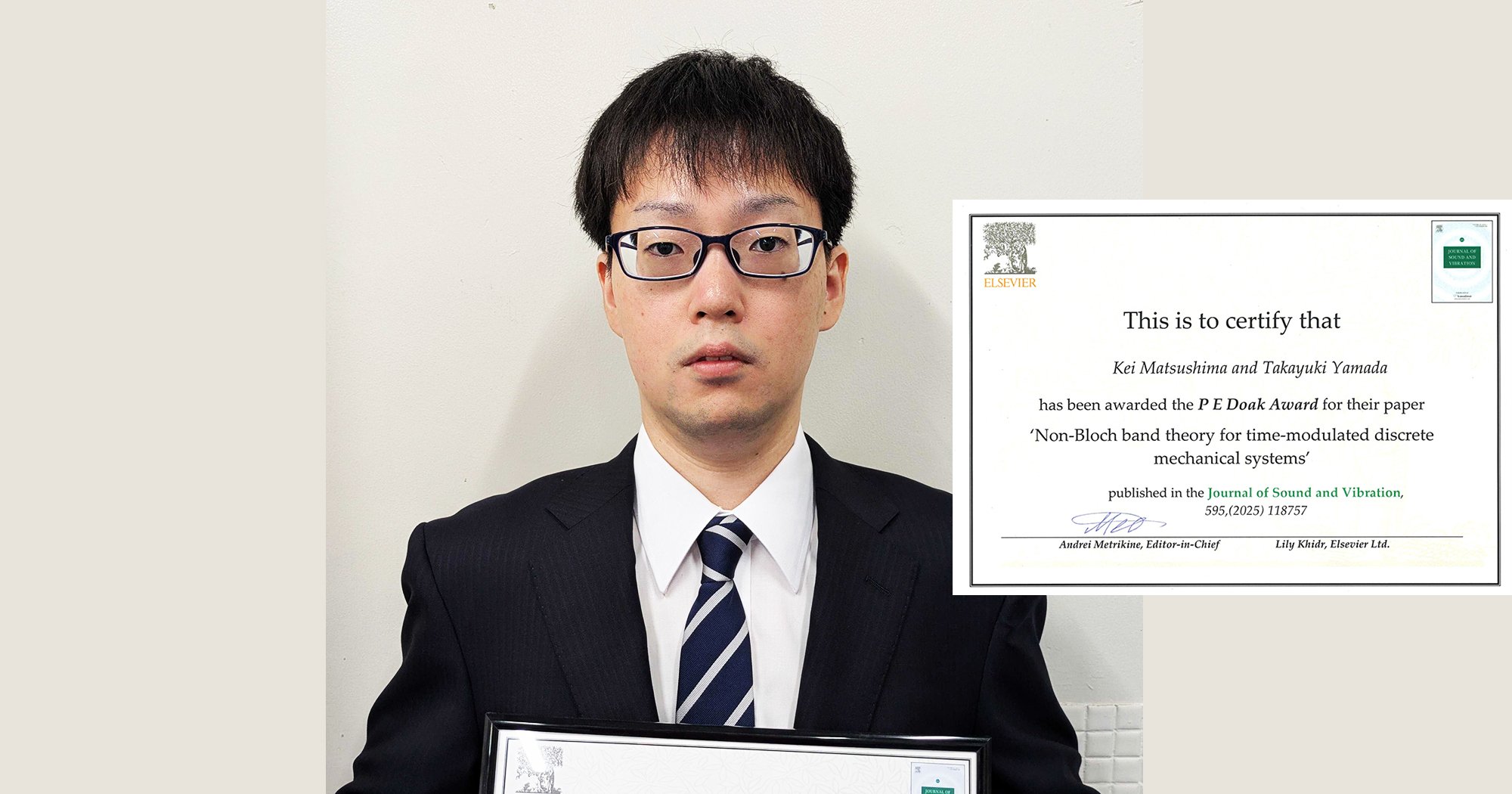Project Researcher Kaira Sekiguchi, Professor Yukio Ohsawa and Emeritus Professor Koichi Hori received the AI ELSI Award (Special Category) from the Japanese Society for Artificial Intelligence
On 29th May 2025, Project Researcher Kaira Sekiguchi, Professor Yukio Ohsawa of the Department of Systems Innovation, and Emeritus Professor Koichi Hori of The University of Tokyo; Executive Director, National Institutes for the Humanities, received the AI ELSI Award (Special Category) from the Japanese Society for Artificial Intelligence.

AI ELSI Award (Special Category) from the Japanese Society for Artificial Intelligence
The AI ELSI Award broadly targets activities related to AI ethics and the relationship between AI and society. It is operated by The Ethics Committee of the Japanese Society for Artificial Intelligence. This 2025 edition was the third edition following 2019 and 2021 (application in 2021, award decision in 2022). The award typically includes Perspective and Practice categories, with a new Special Category added this time.
About awarded research
The awarded activity is titled "Development of Practical AI Technology for Ethical Design of Science and Technology and Its Industrial Applications."
Project Researcher Sekiguchi and colleagues have developed a method and support tool for ethical design, introducing them into industry and education. First, they provided a support tool named "Dfrome" (dfrome.org) that incorporates ethical perspectives into the design of AI technology-based products and services, data, and social systems such as communities and institutions. While much AI ethics discussion focuses on suppressing negative effects, this work makes a significant contribution to ELSI by also promoting positive ethical values of AI. Through practical implementation with the Data Society Alliance and industry-academia collaborative research, they confirmed effectiveness and increased the number of practitioners in ethical design and socially valuable data utilization through workshops using tools like Dfrome. At the time of application for this award, Dfrome had achieved over 800 users and approximately 1,500 design trees in industry and academia, contributing to solving real-world problems including the COVID-19 pandemic.
Second, they discussed data utilization mechanisms from the hierarchical structure of narratives and provided a perspective for structuring human-AI interactions. For example, the support technology for the hierarchical narrative representation "HieNaR" enables hierarchical thinking from generative AI outputs to underlying worldviews, thereby clarifying the assumptions behind AI and allowing systematic examination of relationships with AI. This prevents over-dependence, allows humans to naturally create co-creative relationships with data, and enables application of these insights to real life. By the time of the award ceremony, this research had evolved into a support tool (hienar.com) that integrates ethical design and hierarchical narrative representation.
Third, the innovative aspect lies in proposing a cyclical method of "using ethical AI to design ethical AI." The approach of examining the positioning of ethical systems that AI relies upon in its self-development process has great significance for various ethical designs of systems we will undertake in the future. Furthermore, even considering the stage of ethical AI development by generative AI, these insights are expected to become increasingly important.
For the efforts outlined above, the award was given with high evaluation for "proposing a support tool for ethical design and practical approaches to solving problems through engineering tools" (excerpt from the award rationale).
Your impression & future plan
Project Researcher Kaira Sekiguchi: I am deeply honored to receive such a prestigious award. I will continue to dedicate myself to research and development in ethical design of artifacts, including AI ethics and the relationship between AI and society. I strive to contribute to society through academia, education, and industry.
You May Also Like
These Related Stories

Assistant Professor Kei Matsushima and Associate Professor Takayuki Yamada received The Doak Award

Benedikt Scholz (D3), Assistant Professor Yusuke Hayashi, Project Researcher Mohamed Rami Gaddem, Professor Hirokazu Sugiyama received Technical Achievement Award of SIS


